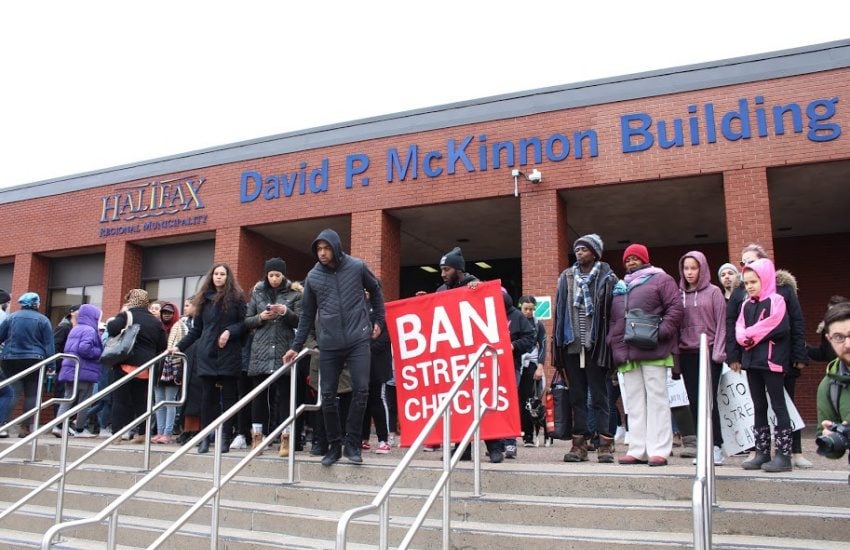
KJIPUKTUK (Halifax) – In Ontario, as in Nova Scotia, police were disproportionately street checking Black people.
In response Ontario made an effort to regulate street checks, much like Justice Minister Mark Furey wants to do here.
In Ontario officers for several years now must inform people that they have a right not to talk to police or produce identification, and must clearly identify themselves. Similar measures are being contemplated here.
But Justice Michael Tulloch, an Ontario judge asked to evaluate Ontario’s regulatory changes by the former provincial government found that the new regulations and policies had little positive effect. We wrote about that report in January.
Better to not do any street checks all, Justice Tulloch concluded after an 11-months review, including extensive consultation with members of the Ontario Black, Indigenous and racialized communities, as well as police representatives.
Tulloch explains that he set himself to answer two questions: does carding work, and should it be allowed?
His answer is nope, and nope.
“I conclude that random street checks, which take considerable time and effort for a police service to conduct, have little to no verifiable benefits relating to the level of crime or even arrests,” Tulloch writes.
“I also consider emergency situations and threats to public safety, and find that the tools police already have, without random street checks, allow them to effectively address such circumstances. I thus recommend discontinuing the use of random street checks altogether.”
“There is little to no evidence that a random, unfocused collection of identifying information has benefits that outweigh the social cost of the practice,” Tulloch said.
As we reported earlier, Tulloch’s recommendations align with what is quickly becoming the consensus in North America.
The recently created task force in Nova Scotia is not asked to consider a ban, nor is it expected to look into the effectiveness of street checks. All it can suggest is new regulations that will somehow make the practice less racist.
In other words, street checks will be back on the streets of Halifax and rural Nova Scotia. It’s just a matter of time.
If they are even gone that is. It’s a fair question to what extent street checks are actually banned, even with the moratorium. Random street checks are suspended, but what is random and what is crime-related is up to the police to determine.
It’s puzzling how we continue to ignore both what the Black community in Nova Scotia has been saying for decades, and all that transpires in other jurisdictions in Canada and North America.
Why not just ban the racist practice and be done with it?
With a special thanks to our generous donors who make publication of the Nova Scotia Advocate possible.
Subscribe to the Nova Scotia Advocate weekly digest and never miss an article again. It’s free!



